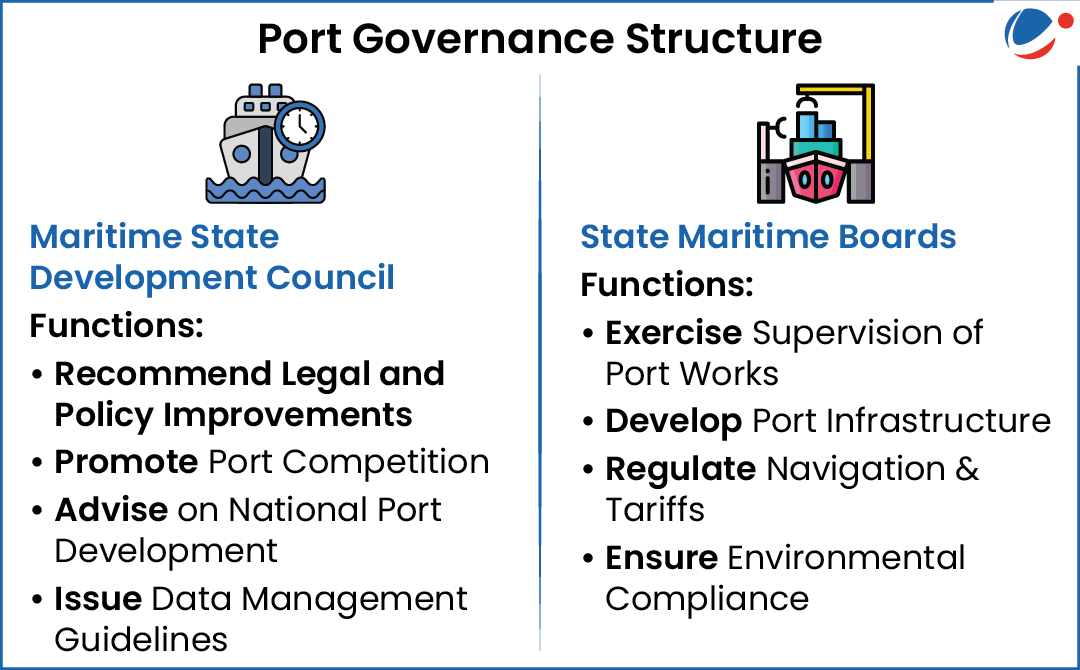The bill will replace Indian Ports Act (IPA), 1908, which was enacted during the colonial period and has become outdated.
- The bill aims to: Streamline laws related to ports in India, focus on promoting integrated port development, ensure optimal utilization of country’s extensive coastline, etc.
Key Provisions and Features of The Indian Ports Bill, 2025

- Applicability: It applies to existing and new ports, navigable rivers, vessels within port limits, and aircraft using port waters.
- Establishment of Maritime State Development Council (MSDC) by the Central Government; Chairman: Union Minister of Ports, Shipping and Waterways.
- Establishment of State Maritime Boards (SMBs): By the State Governments for effective management of ports, other than major ports, within their jurisdiction.
- SMB will inherit all debts, contracts, and obligations of State related to port operations.
- Establishment of Dispute Resolution Committee (DRC): By State for adjudicating disputes related to ports.
- Civil courts are excluded from adjudicating disputes that DRC is empowered to resolve under this Act.
- Appointment of Port Officers: Including conservators and health officers, who oversee operations, enforce laws, manage safety, and handle health issues.
- Safety and Pollution Control: Ports must provide facilities for vessel waste as per international conventions (MARPOL (1973), Ballast Water Management Convention (2004)).
- Mega Ports: The Central Government can classify major and non-major ports as mega ports based on specific criteria.






